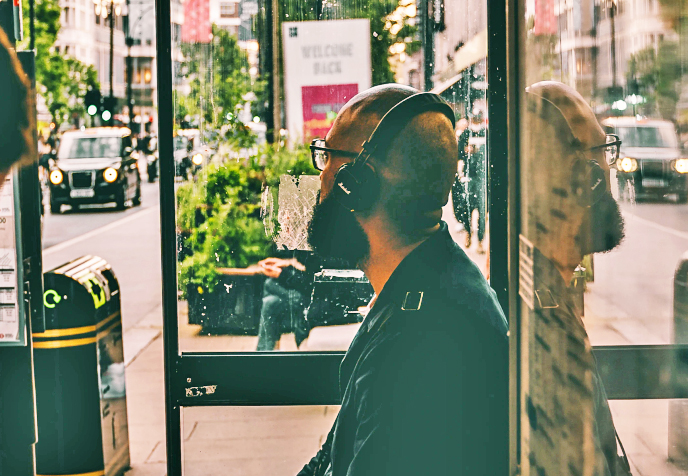Epidemiologists around the world have sounded the alarm about the health risks of rising noise pollution, and called out cars as one of the largest sources of the crisis. In our quest to make cities quieter, though, noise researcher Dr. Erica Walker says we're missing a critical conversation about how unique communities experience their local soundscapes, both in the streets and beyond — and who we harm when we police decibel levels without listening to marginalized people first.
In this episode of The Brake, we sit down with Walker to explore not just why ultra-quiet electric cars won't actually turn down the volume on our neighborhoods much, but who gets to decide what our cities should sound like, how we enforce arbitrary auditory standards, and why a peaceful, walkable street is often the opposite of silent.
Tune in below, on Apple podcasts, or anywhere else you listen, and learn more about Dr. Erica Walker and the Community Noise Lab here.
The following excerpt has been edited for clarity and length.
Kea Wilson: The primary way your work intersects with the Streetsblog conversation, is that a lot of noise in our cities, frankly, comes from cars, and that's a really common talking point, among folks who want to see American cities become less car dependent. Tell me a little bit about your perspective on regulating road noise through the lens of your work.

Erica Walker: So road noise is sort of how I cut my teeth in this in this field. I'd initially wanted to start out by creating a map of transportation sounds in the city of Boston, where I did my graduate work.
[So I went around measuring] sound levels with my sound level meter and in that process people would come up to me and to ask me what I'm doing and share their experiences with me. So as I traveled throughout the different neighborhoods that varied in terms of racial makeup, level of infrastructure repair, socio-economic status, all these things, it made me realize that we tend to only take a very superficial cut and when it comes to sound — and a very punitive cut.
So yes, if you live near a major source of transportation noise, it's definitely louder. But when you talk to people, some people are like, 'Hey, couldn't sleep if this I didn't have the highway sound to put me to sleep,' or 'I can't function in a place where there isn't this background sound. Some found road noise very therapeutic; Others found it extremely bothersome.
So just in having those conversation with people and getting these sorts of different ideas about what transportation noise meant to people, I realized that, well, it's important for me to understand the physical aspects of sound, but it's also important for me to interview people and talk about how things like road traffic noise made people feel. It's one thing to understand the sound, but another to understand the community expectations.
I did see that poor communities were traditionally those that were zoned to be in places with major transportation networks. They were usually the ones that were closer to highways, or right off of very busy bus lines. There were some cultural practices where people like to drive to really loud cars with the mufflers or screeching their tires; there were some cultural aspects to that.
So there are some [problems with] urban planning and design where we do not consider the acoustical soundscape — especially from transportation — when we're deciding where to put people. Or maybe we do [consider the soundscape,] and its intentional when we put people who probably aren't able to stand up for themselves when it comes to these environmental injustice issues like inequitable distribution of sound.
But then there are these cultural, community expectations for sound that shouldn't be ignored. So if someone tells me that the most important sound in their community is transportation noise, or noise from a busy park, or noise from an industrial activity – for me, that's where I'm going to lead in. And I'm not going to lead in that traditionally or overwhelmingly don't impact a neighborhood.
I find that a lot of these punitive measures [around sound] don't take those sorts of things into consideration. Somebody somewhere has this measuring stick for what it's acceptable for a community that they may or may not live in [to sound like], and I think that's completely insane.






